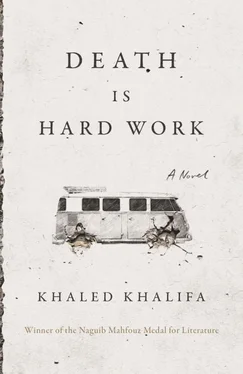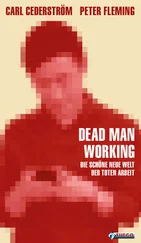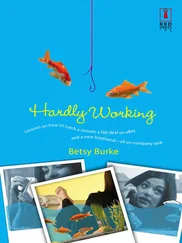The siblings tried to limit conversation and made monosyllabic replies to any questions. All three were thinking how they would need to work together as a family in order to get their father’s body to its last resting place; all were thinking about how they would return to their loneliness and isolation after the burial, how they would have to avoid looking into one another’s eyes for fear of discovering the extent of the gulf separating them. The blissful days of their childhood, when they would exchange secrets, when they could still believe that their life was happy and full of ease, were well and truly over. What had happened couldn’t be explained, but they were no longer anything like their childhood selves. Hussein more than either of the others was a stranger to his original character; Fatima and Bolbol, like their father before them, couldn’t believe he had changed so much. He was no longer a smart, ambitious, strong young man but had become an entirely different person. Anyone who didn’t know him would think he was going out of his way to get himself killed.
Hussein had been closest to the siblings’ parents and was the most spoiled. He won all the prizes at school and captained the soccer team to unimaginable victories all around and outside Damascus before returning borne aloft on his classmates’ shoulders. He would lead his friends on crazy adventures in the alleys of Bab Tuma, where they would skulk and make dates with girls, spending hours in those cafés that allowed teenagers to press against and fondle one another in darkened corners. He invented lies for the benefit of their credulous families and took these girls on long trips to the meadows of Ghouta to woo them with his guitar to the songs of Muhammad Jamal and Sabah before spiriting his beloveds away behind some nearby trees where they would exchange long kisses and he would touch their breasts. He encouraged all his friends to be reckless and take chances. He kept their secrets and passed a terrible judgment on anyone who broke their word. All the girls trusted him and asked him to help them solve their romantic problems—this or that teenage drama, such as someone threatening to shame his girlfriend by sending some rather personal pictures to her family after a fight. Hussein would intervene forcefully, put a stop to the threat, speak to the boyfriend as though he were the girl’s brother, and that was usually the end of the matter. The muscles he was beginning to build up from sports helped him to make credible threats, and he emerged victorious from the many fights he waded into.
Everything changed for Hussein when he reached high school: by that time he was no longer an idealistic boy, but had grown strong and athletic. A woman in her thirties fell in love with him, and within a few months she had transformed him into her bodyguard, escorting her on mysterious errands. He stayed with her for days at a time in the apartment she rented that overlooked the Mezzeh highway and he would return exhausted from being kept up all night. He wouldn’t brook any discussion with his father; when he was bombarded with questions, he packed a suitcase and left for weeks, and no one in his family knew where he’d gone.
Hussein left school before finishing his high-school degree and settled happily into his new life. The night of their big fight, he was insolent to the father who was only trying to help him. After calmly telling him that they had to speak as equals, Hussein explained, in blunt language, that he had no desire to repeat his father’s small-town life of teaching and respectability. He said he hated the world of weaklings; he wanted to live among the powerful. He would creep into their lives and become one of them; he would share their wealth, sleep with beautiful women, travel to different countries, and live in a mansion in the richest part of town.
His father proceeded cautiously in this discussion. He explained the concept of strength of mind, but was mired in customs and traditions that couldn’t convince his son. As for Hussein, he spoke harsh truths that couldn’t be denied. He pointed out Abdel Latif was the most highly regarded geography teacher in the school, and even so his meager salary alone couldn’t keep the family afloat for two whole weeks. His wife was forced to earn a paltry sum shelling peas and beans and peeling garlic for the grocery stores in the rich parts of town. Hussein added coolly that he didn’t want his wife to peel garlic and chop vegetables for rich women in exchange for a few pennies.
Hussein went on. He told his father quietly that Abdel Latif might know all about Brazil and the topography of the Alps, but he didn’t know what went on in his neighbors’ houses. He didn’t know that in this utopia, families sold their daughters to rich Arab tourists who demanded some enjoyment while passing through (of course, legitimized by a temporary marriage contract), and he didn’t know that women who worked in the civil service would go out with men in exchange for a pair of shoes, and they didn’t have to be expensive ones. His father choked at this and no longer knew how to defend his way of life. He stood accused, along with all the sons of his generation, of the fear and cowardice that had brought his country to the point where it was willing to sell its daughters.
This sort of talk was unheard of in Abdel Latif’s house. In the silence following Hussein’s tirade, he wondered if his father might not die of shock that very moment. Abdel Latif couldn’t believe that this was his son, not yet nineteen—a young man caring nothing for the values his father prized above everything else: honor and integrity and morality. Before Hussein got sluggishly to his feet and left the house, he declared these values worth no more than his mother’s plastic slippers and suggested his father accompany him for a few days to see the real marvels of the city. But Abdel Latif had long since refused to ride in Hussein’s car, a Golf 1976 that his lover had bought to make it easier for him to accompany her and her friends on their private errands. His clients weren’t stingy when it came to encouraging Hussein to fulfill their special requests—an extra pinch of hashish or a few grams of cocaine—with alacrity; besides, all Hussein really ever wanted was enough cash for dinner in a restaurant in Bloudan with a girl who was wearing only a skimpy negligee under her coat.
Abdel Latif managed one last sentence. He told Hussein that he couldn’t be both a pimp and his son. Hussein took exception to the word “pimp.” He took out his identity card and scratched out his father’s name: “I’ll write ‘shit’ in its place,” he said as he stormed out, leaving nothing but confusion in his wake.
None of Hussein’s family saw him for two years after that. Abdel Latif forbade anyone from mentioning his name. He judged what had happened to be reason enough to consider his son dead. Sometime later, a woman who didn’t give her name called to inform them that their son was an inmate at Adra Prison, something to do with drugs.
Hussein, who had been his father’s pride and joy, had become his shame, and Bolbol was no good as a replacement: his weakness and anxiety had never exactly endeared him to Abdel Latif. This didn’t especially bother Bolbol. No one ever bets on the weak. Strength of mind, that quality of which his father used to speak so highly, was Bolbol’s only departure from the weakness that otherwise seemed to define his character, but the fact was that Abdel Latif had only really valued Hussein’s physical strength and refused to lay a wager on Bolbol’s mind. Bolbol was happy to be overlooked; he didn’t want to be a racehorse, and he didn’t have the energy to realize the dreams of a family that struck him as not only defeated, but one whose defeat only grew larger with each passing day—larger in every heart and in every corner of their home.
Читать дальше












